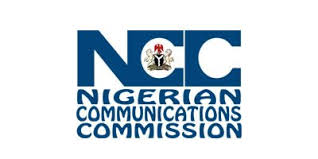by Cheta Nwanze
I woke up early this morning, and like every other person in my area, was met with pitch darkness. It has become an increasingly common occurrence since democracy was reintroduced in Nigeria twelve years ago. There had been power yesterday, so at least the taps ran, and I was able to take my bath. In any event, like most Nigerians, I have made provision for the lack of power, by having a generator. In my case, I have the added luxury of an inverter, and this brings the costs of maintaining my generator down by a good chunk.
Like most Lagosians, I had an early start to the work day. This early start is occasioned by the not so good roads in our state; and the lack of reliable alternatives (no rail, no waterways) means that I and millions of other people in this city have to wake up at unholy hours in order to get to work on time. Since so many of us spend a lot of time in traffic, and do not get any proper rest as a result, we have collectively become very irritable, and many have developed stress related ailments such as high blood pressure. All this contributes to our rather low life expectancy of 47.
I just read that there has been another bomb blast up North, and a friend’s dad was just kidnapped in the East. Another friend had to take a rather tortuous route from Port Harcourt to Calabar fairly recently. He first flew to Lagos, and then caught another connecting flight because he did not want to pass through violence stricken Uyo. Then there is the fact that almost no one that is middle class goes from Lagos to Benin City by road.
A few days ago, there was an accident along the Carter Bridge; and as is the case with most of such incidents, the victims were at the mercy of casual bystanders who had the option of either taking them to our hospitals which do not function so well or leaving them until the emergency services decide that it is worth their time to show up. As a matter of fact, our hospitals are so bad, that one of our ministers recently had to bugger off to the UK for a simple procedure because she has absolutely no faith in what passes for medical care here. Her actions show that she thinks that the nation she is sworn to serve in its cabinet, might just be a failed state.
Since 2005, the magazine Foreign Policy, has published an annual index called the Failed States Index. This list only assesses sovereign states (determined by membership in the United Nations). Several territories are excluded until their political status and UN membership is ratified in international law. For example, Taiwan, the Palestinian Territories, Northern Cyprus, Kosovo, and Western Sahara are not included in the list, even though some are recognized as sovereign nations by some other countries.
The index’s ranks are based on twelve indicators of state vulnerability – four social, two economic and six political. These indicators are not designed to forecast when countries may experience violence or collapse. Rather, they measure a country’s vulnerability to collapse or conflict.
One of the social indicators is demographic pressures occasioned by high population density relative to food supply and other life-sustaining resources. The pressure from a population’s settlement patterns and physical settings, including border disputes, ownership or occupancy of land, access to transportation outlets, control of religious or historical sites, and proximity to environmental hazards. Does this affect Nigeria? Our population is very large, one of the top ten on the planet. Can we feed ourselves? Do we have border disputes amongst communities in Nigeria? Do we have conflicts over who owns what within certain areas? Indigene-settler dichotomy?
Another social indicator is massive movement of refugees and internally displaced peoples. Only a few days ago, it was reported that the recent crisis had uprooted close to 50000 people. We haven’t mentioned all the people displaced by the insurgency in the Niger Delta, the Bakassi refugees, and the yet to be settled former residents of Maroko who were dumped in Ikota twenty one years ago.
The third social indicator is the legacy of vengeance-seeking group grievance. Think MASSOB. Think Arewa. Think OPC. Think Jos.
The final social indicator is chronic and sustained human flight, where both the “brain drain” of professionals, intellectuals and political dissidents and voluntary emigration of “the middle class” and the growth of exile/expat communities are indicators of a failed state. To check the truth of this one with regards Nigeria, all you need to do is take a census at our airports. The sheer number of people who are leaving the country with no intention of returning in the near future is overwhelming.
Now the first economic indicator is uneven economic development along group lines. This is usually determined by group-based inequality, or perceived inequality, in education, jobs, and economic status. It is also measured by group-based poverty levels, infant mortality rates, and education levels. Again, we do not have to go far to see examples of this. The constant cry of marginalisation by groups from all parts of Nigeria, be it from the East, from the Delta, from the West and even from the North is testament to this. And they are indeed marginalised. The Delta, which produces 90% of our nation’s current wealth, has seen a lot of its youth take up arms because they feel cheated. The East constantly cries out about marginalisation. Outside of Lagos, the rest of Western Nigeria is nothing to write home about, not that Lagos in itself is an example of paradise. Then there is the North…
The second economic indicator is sharp and/or severe economic decline, which is measured by a progressive economic decline of the society as a whole (using: per capita income, GNP, debt, child mortality rates, poverty levels, business failures.) A sudden drop in commodity prices, trade revenue, foreign investment or debt payments. Other criteria for measurement include: collapse or devaluation of the national currency and a growth of hidden economies, including the drug trade, smuggling, and capital flight; failure of the state to pay salaries of government employees and armed forces or to meet other financial obligations to its citizens, such as pension payments. Where does this sound like?
There are four political indicators of a failed state.
The first one is criminalization or delegitimisation of the state which is exemplified by endemic corruption or profiteering by the ruling elite and resistance to transparency, accountability and political representation. This also includes any widespread loss of popular confidence in national institutions and processes. With the exception of the recent presidential elections, which were largely seen as relatively free and fair, the average Nigerian has zero confidence in the ability of the Nigerian state to get anything done. Corruption is endemic in our country, and hypocrite that I am, I have participated in bribing the occasional police officer.
The next political indicator is the progressive deterioration of public services. A disappearance of basic state functions that serve the people, including failure to protect citizens from terrorism and violence and to provide essential services, such as health, education, sanitation, public transportation and power. Again, there is the problem of using the state agencies to serve only the ruling elite, such as using the police as personal bodyguards for “bigmen”.
The remaining three indicators are problems that, to be fair and honest, while present in Nigeria, might not yet be on a scale that are a cause for alarm. Again to be fair and honest, we had these indicators in abundance during the Abacha era. The first one is a widespread violation of human rights, when the country’s security apparatus become a ‘state within a state’ and operates with impunity. The second indicator of a failed state is the rise of factionalised elites, a fragmentation of ruling elites and state institutions along group lines. Does this presidential campaign just pastremind anyone of this factor?
The final indicator of a failed state is the intervention of other nations. We have not gotten there yet, but if we continue on the path we are on, who knows, we might have US Marines on our shores seeking to “protect the energy security of the United States”. The sad reality is that 11 indicators out of 12 are present in our country in one form or the other. The 12th is one that will come if we continue living in denial and pretending that there’s nothing seriously wrong in our country.
In a funny way, when people tell me not to say publicly that Nigeria is a failed state, they are inadvertently displaying one of the signs of a failed state. Sign number 10: the inability to speak freely because of widespread violation of human rights. Heaven helps those who help themselves, so it is high time we stop praying and get working.
This article first appeared on www.dailytimesng.com








